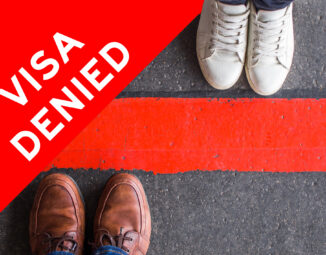The U.S. Department of Homeland Security Modifies COVID-19 Special Exemptions for F-1/M-1 Students Regarding Online Courses, Potential to Impact CPT Work Authorizations
On July 6, 2020, the Student and Exchange Visitor Program (“SEVP”) announced a series of changes for the Fall 2020 semester that will rollback accommodations made in response to the COVID-19 pandemic with regard to F-1/M-1 student visa holders’ ability to take courses online. For background, SEVP instituted a temporary exemption during the Spring and Summer 2020 semesters allowing students to take more courses online than is normally permitted as to allow foreign students to maintain valid immigration status. Generally, F-1 students are permitted to take a maximum of one class or three credit hours online.
These new rules could impact an employer’s ability to employ or continue to employ F-1 students pursuant to Curricular Practical Training (“CPT”). Therefore, it is critical that employers proactively verify whether each of its CPT-authorized employees will remain eligible to live and work in the U.S.
The announced changes are as follows:
- • F-1 and M-1 students attending schools operating entirely online may not remain in the United States.
- The Department of State will not issue visas to students enrolled in schools or programs that are fully online for the Fall 2020 semester nor will U.S. Customs and Border Protection permit these students to enter the country.
- For impacted students currently in the U.S., they must take action so that they are participating in a permissible program (e.g., transfer schools to one requiring in-person attendance) or else depart the U.S. Otherwise, they will be unlawfully present which could have serious negative consequences on their future ability to obtain immigration benefits.
- However, foreign students who are enrolled in a U.S. school offering online-only classes may remain in active F-1 student status in SEVIS while living abroad if they are taking online classes and are able to meet the normal full course of study or a reduced course of study. This accommodation is only available to foreign students whose U.S. schools are operating entirely online.
- F-1 students attending schools operating under normal, in-person classroom meetings are bound by existing rules.
- F-1 students attending schools deploying a hybrid—that is, in-person + online—model will be permitted to take more than the usual one course/three credit hours online. However, these schools must certify to SEVP on the student’s Form I-20 that:
- (i) the program is not entirely online;
- (ii) the student is not taking an entirely online course load for the Fall 2020 semester; and
- (iii) the student “is taking the minimum number of online classes required to make normal progress in their degree program.”
- Note that the above exemptions do not apply to F-1 students in English language training programs or M-1 students pursing vocational degrees, who are not permitted to enroll in any online courses.
These analyses will be very case specific. We urge employers to contact us so that we can counsel and guide you in proactively evaluating whether your F-1 student workers will be eligible to continue to live and work in the U.S.
The information contained in this publication should not be construed as legal or medical advice, is not a substitute for legal counsel or medical consultation, and should not be relied on as such.





